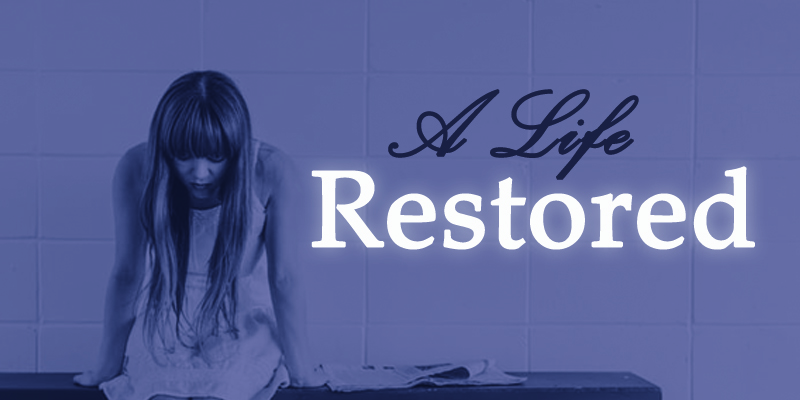
You probably saw her on the street. She was standing on a corner, looking at her phone and texting, or walking the 3-6 miles per day she normally puts in. She looks presentable, and if you talk with her she is friendly and positive. But Isabella (not her real name) is homeless. She looks for cars in the bus depot that are unlocked that she can sleep in overnight, then she roams during the day, trying to keep warm and looking for food. She comes from a long history of abuse, starting with rape when she was a child from a family member she was sent to live with when her mother abandoned her. She never knew her father. Relationships with men always led to intimacy that compromised her sense of self-worth. She never found the true love and affection she longed for.
Now, after domestic abuse so violent she feared for her life, she finds herself alone and on the streets. The police helped her escape, but they could do nothing after getting her into the abuse shelter. It was up to her from that point on.
Because she hadn’t worked a regular job and had been part of a household, she didn’t qualify for most programs yet. And because she didn’t have her children, having left them in the care of the father in order to preserve her life, she was lower on the priority list for aid. Falling between the cracks, she began to look for help in all the wrong places, trying desperately to stay afloat or to find a warm place to lay her head for the night.
Her relatives out of state called the church to ask for help on her behalf.
Care Ministry found a place for her to stay, helped her get a job, found a place for her to live until she could get a place of her own, connected her with county resources and began to partner with them to eliminate some of the obstacles. Trinity provided financial budget counseling and job search training to update her resume and get her name out there.
She needs a car. She needs a permanent home for her and her children. She needs furniture to fill it. She needs clothing for growing kids. She needs a permanent job for self-worth and sustenance. And she needs Jesus.
Conversations have centered on how this will be a life change for her in many ways, but that the greatest hope from our relationship with her is that she would know the Person who can offer true and lasting Hope, that she would experience the real unconditional love that will never leave her or forsake her.
She is not there yet, but she is on a path of restoration.
She is only one of many that God will lead us to help. Too many are helped with one step, then dropped by agencies once a need is met. What they really need are supportive relationships that will walk with them through the entire process. They need friends who will champion them when the world says they aren’t worth anything, friends who will lovingly commit to them even when they make mistakes. Friends who will lead them to resources like ReStored.
When they need furniture, ReStored will be there. When their kids need clothes for school, ReStored will be there. When they begin permanent jobs and need to dress appropriately, ReStored will be there. And if there are other needs – English language lessons, spiritual counsel and prayer, parenting classes, etc. – ReStored and its ministry resources will be there.
But more importantly, “Jesus with skin on” will be there through those whose lives have touched hers and will continue in loving friendship with her. Jesus cares for her, and so do we.
